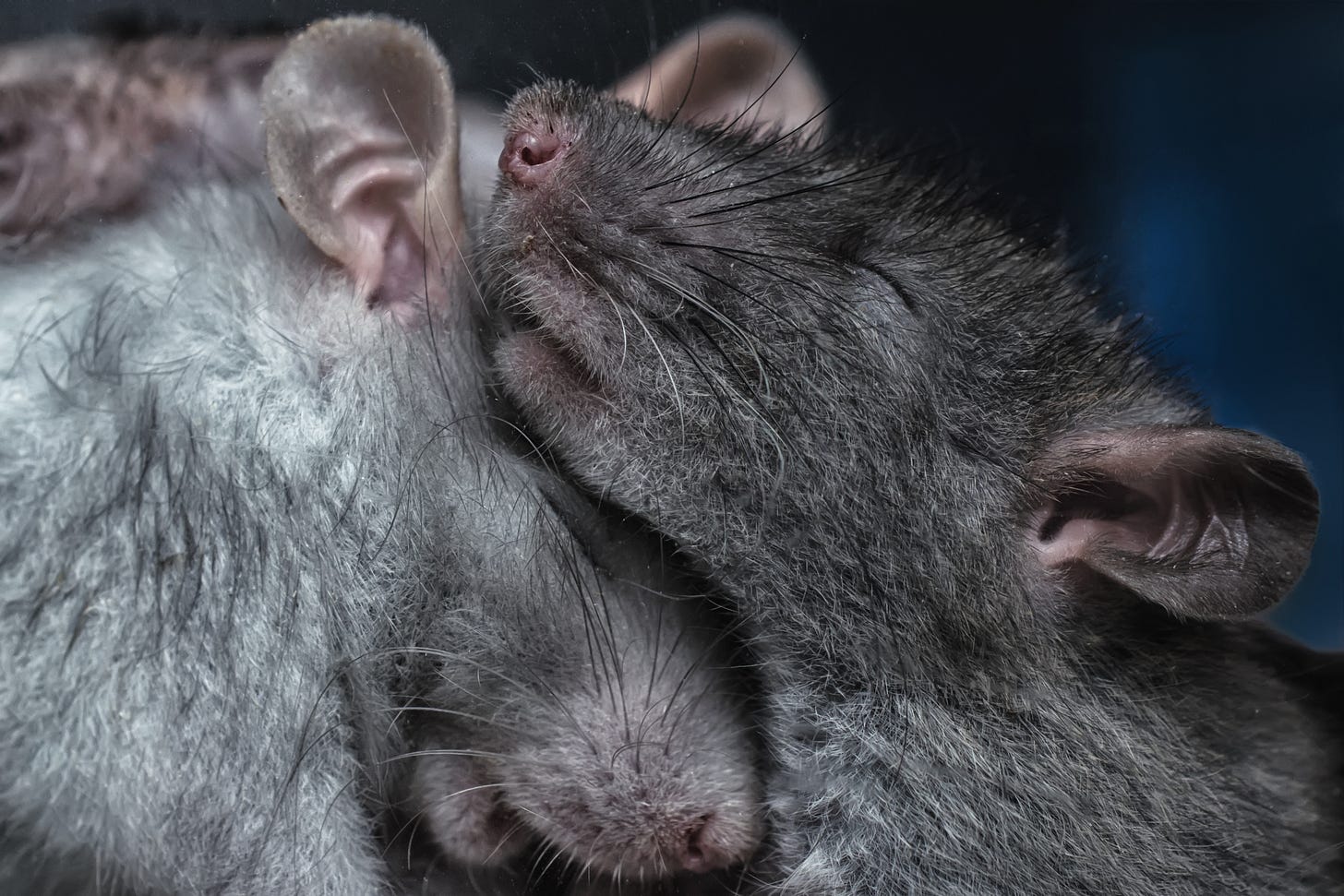Research Hit: Can Cuddling Improve Your Memory?
Oxytocin - the "cuddle hormone" - has been shown to improve memory.
Is oxytocin really the cuddle hormone?
Well, that is a massive over simplification and certainly romanticising our hormones and neuromodulators, but oxytocin can certainly be considered one of our main social and bonding hormones. This helps drive trust, friendship, parent-child bonding, and romantic bonding.
I reviewed the science of love previously here.
And you are saying that some research now shows it’s involved in memory formation?
Yup, Junpei Takahashi et al. of the Tokyo University of Science have been researching dementia with mouse models and indeed oxytocin seems to have positive benefits.
Is this from improved wellbeing leading to better memory, or directly influencing memory.
Well, better wellbeing is always good to have and will improve brain health, and memory over time. Oxytocin is also important for that (why having close relationships is important for health). But the researchers also showed better memory directly from oxytocin.
Oh, explain?
Well, oxytocin has also been implicated in social memory - which would tie in neatly to its social functions. However in this research, using different methods, the researchers focused on an area in the brain called supramammillary nucleus (SuM) and oxytocin pathways to this.
They found that activating oxytocin pathways lead to the aforementioned improved social memory. It did not improve spatial navigation and memory but, more surprisingly helped increase object recognition and memory.
So remembering things
Yes!
So how do we activate oxytocin in our brains?
Cuddling.
Seriously?
Yes, cuddling will activate oxytocin as will gentle stroking - it could also be cuddling your dog or cat. This activates the same pathways - which is why it feels good!
Ok I’m off to cuddle a dog…
Reference
Junpei Takahashi, Daisuke Yamada, Wakana Nagano, Yoshitake Sano, Teiichi Furuichi, Akiyoshi Saitoh.
Oxytocinergic projection from the hypothalamus to supramammillary nucleus drives recognition memory in mice.
PLOS ONE, 2023; 18 (11): e0294113
DOI: 10.1371/journal.pone.0294113




